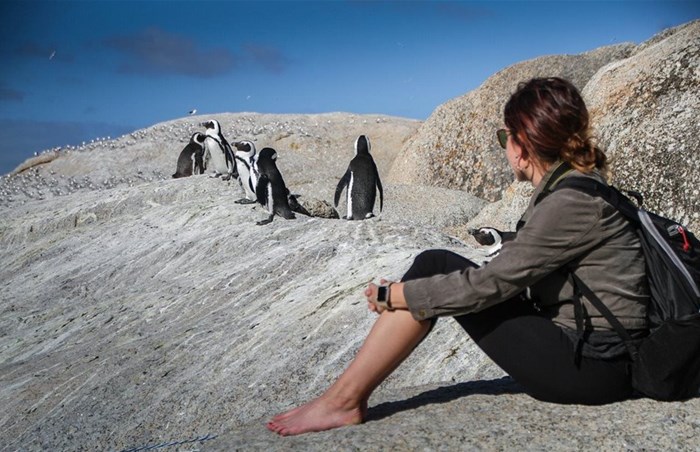As Tourism Month draws to a close, the local tourism industry is enjoying a better-than-expected post-Covid recovery, with spending by international arrivals more than doubling versus the same time last year (R48bn vs R21.5bn ).
But to ensure this isn’t a short-term recovery that could be derailed by toughening global economic conditions, increasing competition from other destinations, and internal challenging such as load shedding, the local industry must put in place long-term fundamentals.
These should include increased on-the-job training for tourism industry workers, better opportunities for formal qualifications in tourism, an acknowledgement that an ‘inside-out’ approach is what’s needed to enhance the overall SA tourism product, and a change in mindset that regards tourism-industry employment as low-paying ‘McJobs’.
This is the warning from customer service expert Nathalie Schooling, CEO of customer experience agency nlightencx, who says abundant wildlife, beautiful scenery and clever destination marketing are not, in themselves, sufficient to ensure long-term tourism success.
Customer experience: Where the rubber hits the road
Schooling believes customer experience is truly where ‘the rubber hits the road’ when it comes to tourism products and services. Yet it is one of the things that local and foreign tourists most complain about when they visit the country.
“When you look on review sites such as Tripadvisor, LekkeSlaap, Booking.com, Afristay and others, poor customer service is our Achilles heel,” she says. “As a country we have so many good things to offer visitors, but we frequently fall down on basic customer service.”
“Customers may put up with bad service out of necessity in some industries, but in tourism their spend is discretionary and they expect to be looked after – especially when it comes to business travellers – so they will quickly take their money elsewhere. And they will tell many others through word-of-mouth and online reviews,” Schooling observes.
“Having one visitor once is not a good strategy; the most cost-effective business is repeat business, and you need those satisfied customers to amplify your brand and your marketing efforts.”
No, it’s not all about price
A study published in July 2023 in the American Marketing Association’s Journal of Marketing shows clearly that in the hotel industry, for instance, pricing and positive online reviews of a guest’s stay are the two most important drivers of business.
“If you can balance both, you have a winning formula,” emphasises Schooling. “In the local airline industry, for example, there’s a school of thought that it’s all about the price of a seat. It’s important, of course, especially for local leisure travellers. But if price is your only point of difference, when a competitor matches or beats that price then you have nothing else to offer.
“Better to be an Airlink and have a superior on-time record versus your bigger competitors, or a LIFT airline that offers better customer service. A good experience will be remembered long after the cost of the flight is forgotten.”
Training and motivating tourism employees
She says the same principle applies to all tourism products and for this reason it’s important even for budget-focused operators to spend time and money on staff training – whether this is on-the-job or in specialist training environments such as colleges and technikons.
It’s also essential to reward employees appropriately and create a supportive environment where they feel valued and can progress in their workplace.
Too often, tourism jobs in South Africa are not seen as career paths and are mere ‘fill-ins’ until something offering better pay and opportunities comes along.
“Demotivated employees give bad service. Bad service devalues your product. Even budget customers have a right to expect friendly and efficient service, as well as effective product delivery,” observes Schooling.
Educating all the other roleplayers
Motivating all roleplayers in the wider SA tourism environment – including the general public and those working in transport, retail, government, law enforcement and border control – should be a key part of making the country more tourist-friendly.
Schooling says she was pleased to hear that Toni Gumede, manager in the office of the CEO of Brand South Africa, had told an international marketing conference in early September that tourism branding should be ‘inside out’, with a focus on achieving buy-in from people and business within the country.
“If [local] people are not happy with their tourism product, then you have already lost half the battle,” Gumede said.
“It’s music to my ears,” enthuses Schooling. “South Africa is a brand, and each region is a brand. The people living there are a part of that brand, even if they don’t work directly in tourism, because they interact with visitors regularly in some way.
“So they need to be made aware of the importance of tourists to the country – and the critical role that they can play, even if it’s just a ‘hello’ and a smile or a wave.
“Africans are naturally friendly and outgoing people. They can contribute more to a great visitor experience than paying millions to Trevor Noah to be a brand spokesperson, or being a sponsor of an English Premier League soccer team.”

































